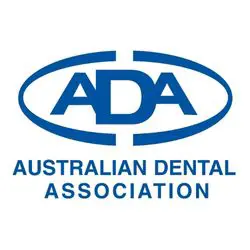
Key messages
- Private health insurance provides you with more cover for health care services that are not covered by Medicare.
- Private health insurance can help pay for the cost of this dental care.
- As part of private health insurance, you can pay for hospital cover, and extras cover. You can buy these separately or together.
- Some private health insurers have arrangements with health care professionals that provide health services that are covered by extras cover. These are called preferred providers.
In Australia, the public health system covers health care for most Australian residents. This system is called Medicare. But it does not cover everything. Australians can pay for private health insurance to get more cover for health care services.
Dental care is mostly provided at private dental clinics in Australia. Private health insurance can help pay for the cost of this dental care. Medicare only covers certain situations, such as the Cleft Lip and Palate Scheme for Australians born with a cleft lip or palate.
What are the types of private health insurance cover?
Hospital cover
This covers you for some or all of the extra costs of being a private patient in a public or private hospital. Medicare generally covers you for 75% of the Medicare Benefits Schedule (MBS) fee. Your private health insurance fund covers the remaining 25%. However, doctors may charge more than the standard MBS fee. This means there is a "gap" between what Medicare and your private health insurance cover. You will need to pay the cost of this “gap”. There may also be fees for other hospital costs such as:
- the hospital operating theatre
- intensive care
- medicines.
Extras cover
This covers you for a range of health services, including:
- dental care
- chiropractic care
- physiotherapy
- optometry.
Private health funds have different levels of extras cover. The services covered can also be different between health funds.
If you do not use these services often, extras cover may not give you good value for money. A better option could be saving money for these services should you need them.
Ambulance
Medicare does not cover you for ambulance services. You may need to have ambulance cover as part of your private health insurance depending on where you live in Australia.
Choosing the right policy
A rebate is the amount of money you get back from your private health insurer when you make a claim for a service. Some companies may call these benefits. The rebate will be different between the different health funds. There are also limits on the amount you can claim back each year.
An average rebate is about 50% of the cost of dental treatment. Not-for-profit health funds or restricted health funds may give rebates up to 75%. The rebate amount is set by your private health insurer. It is not set by the health care professional.
Choosing the right policy
There are a lot of private health insurers and types of policies available. There are factors that can make comparing private health insurance policies tricky, such as:
- you can take out hospital or extras cover only
- couples do not have to have the same policy
- couples do not have to be covered by the same insurance fund.
Using comparison websites
Finding the right policy can be challenging. When comparing providers and policies, it helps to have a good comparison tool to assisting you in sorting through all the options and working out which one is the right policy for you.
It is easy to assume that the policies by larger health funds are better. However, many smaller private health insurance funds offer polices that provide more detailed, generous cover and higher rebates. You should make sure that any search you do includes as many different health funds as possible.
To help you make an informed decision, the ADA has partnered with Fair Health Care Alliance who believe private health insurance "should be simple" and that a policy should match exactly to your circumstances. https://fairhealthcare.com.au/ .
You may also find the government websites privatehealth.gov.au or choice.com.au more useful. These websites have detailed and unbiased information on policies by private health insurance funds.
What is a preferred provider health professional?
Some private health insurers have arrangements with health care professionals that provide services that are covered by extras cover. These health professionals usually provide services to the health fund members at a higher rebate than health professionals without these arrangements. These are called preferred providers.
Health insurers will usually recommend these professionals and their dental clinics to their members. Health funds may advertise “no out of pocket expenses’ or “reduced out of pocket expenses” for these preferred provider health professionals and clinics.
You have the choice in what dentist or dental specialist you see for your dental care.
Making a complaint
You should contact your health fund if you have any problems. Make contact in writing so there’s a record of your conversation with the health fund. You can make a complaint to the Commonwealth Ombudsman if you feel that your health fund:
- won’t help you
- can’t help you
- have given you the wrong information.
When you make a complaint, the Ombudsman will decide how serious it is, and if they need to investigate further. They will decide if the health fund's first response was appropriate or if the they need to take more action.
To make a complaint, go to the Commonwealth Ombudsman and select the Private Health Insurance Complaints.
Time2Switch Campaign
The Australian Dental Association created the Time2Switch campaign. This campaign aims to improve the balance between the dental profession, patients, and health funds.
Read more about the ADA’s Time2Switch campaign.


